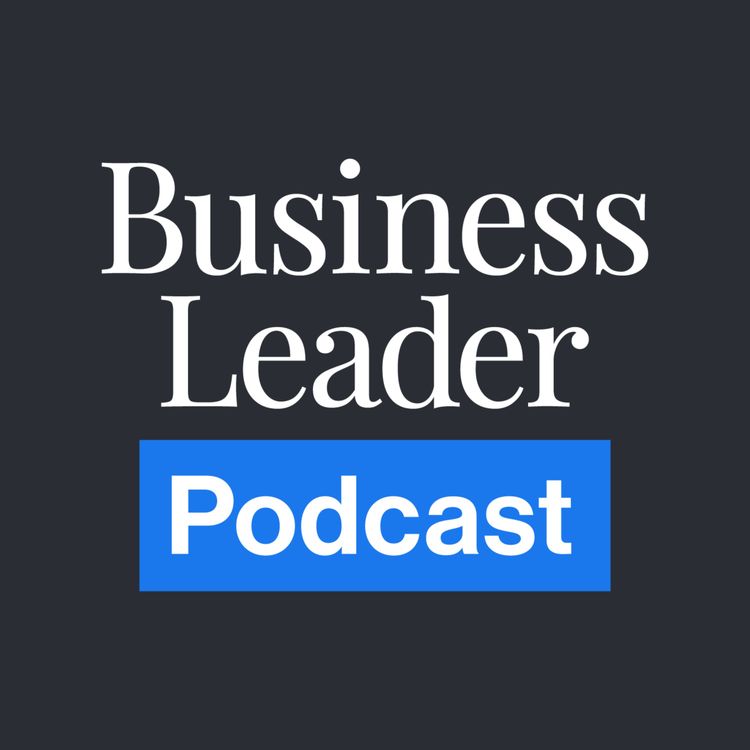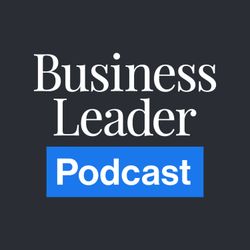Share

Business Leader
MorphCostumes: From side-hustle to multi-million Scottish success story
•
Fraser Smeaton co-founded MorphCostumes with his brother and a friend in 2009 in Edinburgh. It began as a side-hustle specialising in a particular kind of striking, head-to-toe party costume made of Spandex, the "Morphsuit". An immediate success, the co-founders quit their jobs and the company turned over £1m in its first year. However, by 2014 it was clear the company was becoming a victim of its own success. The product was no longer novel and the business was in real danger of going under. In this episode of the Business Leader Podcast, Fraser Smeaton explains to Dougal Shaw how they were able to reinvent themselves to find success all over again, in a new guise - with lessons for others.
More episodes
View all episodes

The banking CEO helping 'extraordinary' people afford homes
31:15|Sue Hayes, CEO of Nottingham Building Society, joins Dougal Shaw on the Business Leader podcast to explore how she’s been transforming a 175-year-old institution into a modern mutual. Hayes discusses her key strategy, defined as "together we fight for the extraordinary". Her mission is to target underserved borrowers, like Gen Z and side hustlers with irregular incomes, and help them buy homes. She explains how her building society leverages AI and fintech partnerships to modernise mortgages while maintaining its purpose-driven ethos. From rebranding to the future of high street branches, Hayes shares insights on leadership and staying relevant in the modern banking sector. She was speaking to Dougal Shaw in early November 2025.
The AA
35:34|Few businesses have more than 17 million customers and can say the Queen was one of them. But that's the AA. However, it has had a difficult time recently. It was drowning under £2.7 billion of debt and was taken off public markets following a takeover by the private equity firms Warburg Pincus and Towerbrook. Since then chief executive Jakob Pfaudler has been working on a turnaround of this unique business. This is the story of the AA and that turnaround...
Sanjay Poonen: Getting fired was the best thing to happen in my career
32:50|He leads a US tech firm valued at $8bn, but Sanjay Poonen puts his success down to a major career setback. Poonen is CEO of US cybersecurity and AI company Cohesity, based in Silicon Valley. He grew up in Bangalore, India, but a scholarship to Dartmouth College in the US to study computer science brought him to the US. On graduation, he rose up the ranks of a Who’s Who of Silicon Valley tech companies, including Microsoft, Apple, Symantec, SAP and VMware. It was while he was vice president of marketing at Informatica that he suffered his first major career setback – he was fired. Poonen explains to Dougal Shaw why this moment of rejection ultimately made him a better, more mature and compassionate leader. He also gives advice on how to hire the best talent in the competitive world of tech.
From elite sport to elite business: Bob Skinstad’s journey
39:20|In this episode, host Josh Dornbrack speaks with Bob Skinstad, former Springbok and Rugby World Cup winner, about leadership, elite performance and transitioning from professional sport into business. He shares lessons from rugby, venture capital, consulting and building winning teams in high-pressure environments.
The revival of Debenhams
45:17|The department store chain Debenhams was founded in 1778 but went bust in 2020, leading to thousands of job losses and the disappearance of one of Britain's best-known high street names. But now it is back, reimagined for the digital age. In this episode of the Business Leader Podcast, Debenhams chief executive Dan Finley tells the story behind this turnaround. Dan Finley was appointed the boss of Debenhams in 2022 after the brand was bought by Boohoo. Now he is chief executive of the whole Boohoo group, which has been renamed Debenhams. That has brought its own unique challenges...
Alibaba.com's president explains how AI tools let SMEs access global supply chains
23:13|It’s a magnet for side hustlers around Europe. The CoCreate event was held this November in London, the first time it’s come to Europe. It’s an event run by Alibaba.com, a global online marketplace for b2b wholesale trade. Small businesses use it to source in bulk products from manufacturers and trading companies to then sell to consumers themselves. Alibaba.com is part of Alibaba Group founded by Jack Ma in China in 1999. Alibaba.com now connects 50 million buyers with 200,000 global suppliers, many of them based in China. At CoCreate there are suppliers showing off their wares, including everything from robot vacuum cleaners to skincare products and fashion items. Dougal Shaw spoke to the entrepreneurs who flocked to this event before catching up with Kuo Zhang, the president of Alibaba.com, to find out how small companies can access global supply chains, with AI making the task increasingly sophisticated.
Katharine Viner: The editor taking the Guardian into the TikTok age
34:45|Many prime ministers don’t make it to 10 years in office. US presidents only get eight at most to secure their legacy. Katharine Viner has had a decade and counting as editor-in-chief at the Guardian newspaper. She is also the first woman to hold the role. She’s made radical changes to an institution more than two centuries old, while returning it to profit. Dougal Shaw took a trip to the Guardian HQ in London to learn about the reader revenue model that took everyone by surprise, commercial innovations like The Filter and how she plans to attract younger audiences while navigating the perils of social media.
Viral video to viral brand
46:08|In this episode, Lucie Macloud reveals the unexpected story behind Hair Syrup’s meteoric rise—from a homemade solution shared on TikTok to a multi-million-pound beauty brand. In this episode of the Business Leader podcast, she joins Lucy McPhee and Josh Dornbrack to talk about battling self-doubt, navigating Dragons’ Den, handling explosive growth and learning how to lead long before she felt ready.
Mountain Warehouse and Mark Neale
45:17|The story of how one of the best-known high street chains was built. Mountain Warehouse now has more than 400 shops and generates more than £450m in annual revenue. But, as founder and chief executive Mark Neale tells Graham Ruddick, this story starts with a shop selling roller blades...